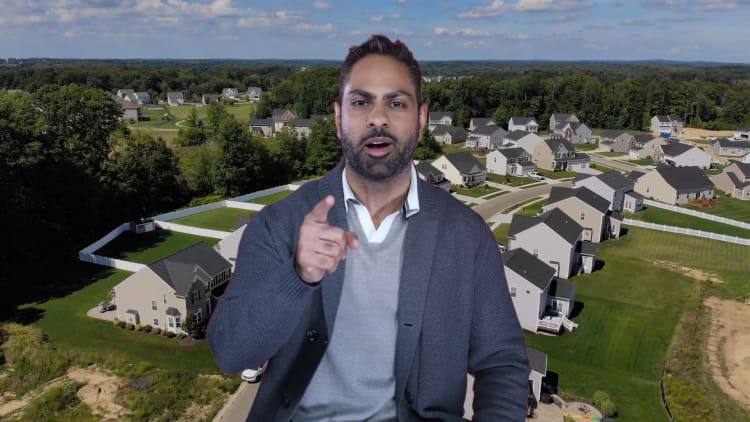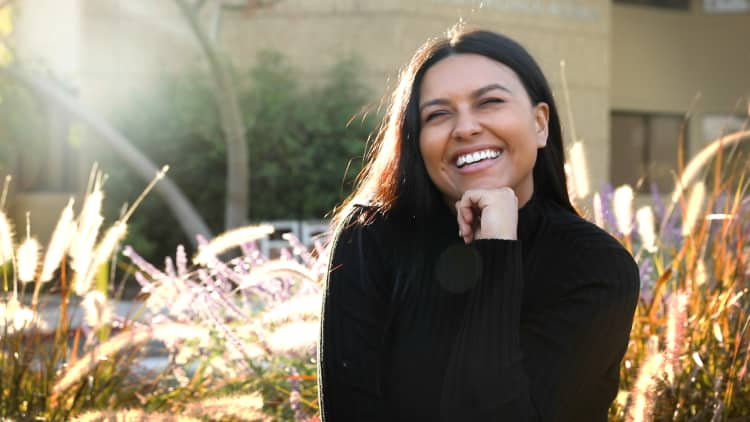This year, many Americans are looking to buy homes. But many of those who aren't homeowners yet are facing some serious obstacles that are preventing them from pursuing it, according to a new survey from NerdWallet, a personal finance company.
Of the roughly 2,000 U.S. adults ages 18 and older surveyed, 42% of non-homeowners (also including renters) say their low income is a big inhibitor in their efforts to buy homes. Other non-homeowners (37%) also cited that they didn't have enough saved for a down payment.
To conduct their survey, NerdWallet commissioned The Harris Poll and also used data from Zillow, U.S. Census estimates and the Bureau of Labor Statistics' Employment Cost Index to complete their findings.
Having a low income, and not having enough for a down payment "are two sides of the same coin," Holden Lewis, home and mortgage expert at NerdWallet, tells CNBC Make It. Those who don't have enough income to save for a down payment will have a difficult time becoming homeowners.
Lewis also noted that for many non-homeowners, there aren't enough affordable homes in their target locations available. According to the survey, a lack of available homes is preventing 36% of non-homeowners from pursuing home-ownership.
How non-homeowners can overcome obstacles to purchase a home
Despite the difficulties non-homeowners may face in searching for affordable homes, there are ways they can overcome these obstacles. The main way non-homeowners can achieve this, says Lewis, is by finding ways to overcome their low incomes and saving up for a down payment. But that's not the only way, he said.

Prospective buyers don't necessarily have to aim for affording a 20% down payment on a home, says Lewis. In fact, he notes that since the minimum down payment required for a conventional loan is 3% and that the minimum down payment required for an FHA loan (that is, a loan insured by the Federal Housing Association) is 3.5%, non-homeowners can actually aim far lower.
"Saving for down payment doesn't have to be the biggest stumbling block in the world if you can buy a home with just 3% down," says Lewis. "That's the main message I would give people who are really worried about their ability to buy a home."
That said, non-homeowners who are thinking about putting down less than a 20% payment should also consider how this will affect their monthly mortgage payments. If you have less saved for a down payment, it's likely that you'll end up paying more in the course of owning a home after factoring in interest and the cost of mortgage insurance, which lenders usually require if you put down less than 20% toward a down-payment.
But Lewis also adds that even though home prices are high, right now mortgage rates are lower than usual, which is useful for non-homeowners to keep in mind. These lower mortgage rates can help them save more than they might be expecting to when looking for a home.
"When mortgage rates are this low," Lewis explains, "that increases the affordability of homes because your dollar just goes farther with that mortgage payment."
Check out: The best credit cards of 2020 could earn you over $1,000 in 5 years



